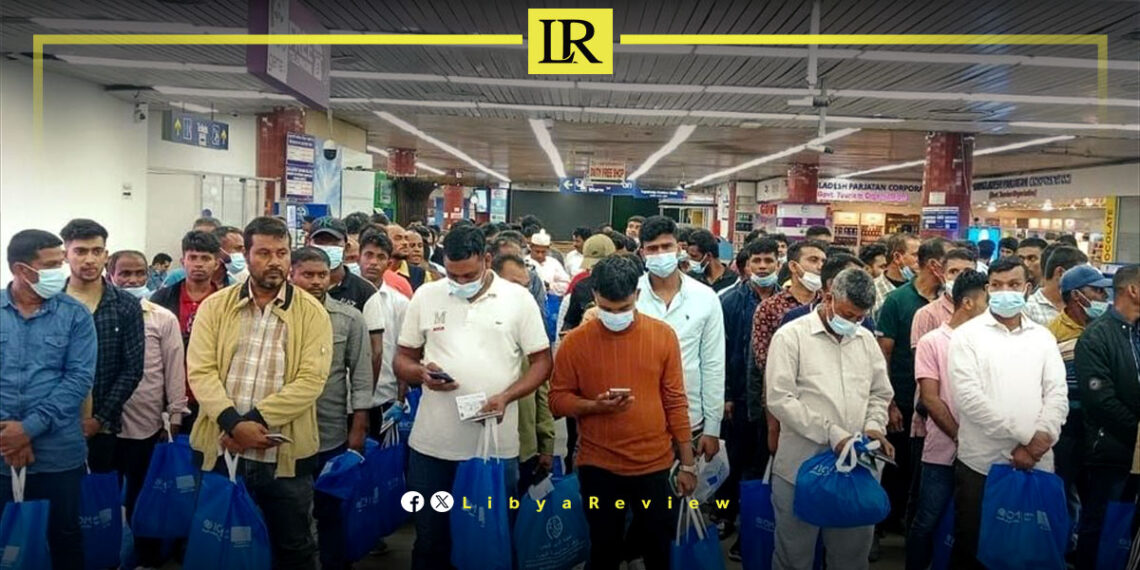A total of 154 undocumented Bangladeshi migrants were repatriated from Libya on Friday, according to BSS news.
The coordinated effort was led by the Bangladesh foreign ministry, the Bangladesh mission in Tripoli, and the International Organization for Migration (IOM).
The returnees arrived at Hazrat Shahjalal International Airport (HSIA) in Dhaka on a chartered Buraq Air flight. As part of the repatriation, IOM provided each individual with Taka 6,000 in cash, along with food supplies, medical care, and temporary accommodation.
Upon arrival at the airport, officials from the Ministry of Foreign Affairs and IOM were present to receive and assist the returnees.
This repatriation marks another step in the Bangladesh government’s ongoing effort, in collaboration with IOM, to safely return Bangladeshi nationals stranded in Libya without legal documentation.
The foreign ministry, in cooperation with the Bangladesh Embassy in Tripoli, has been working to ensure the safe and dignified return of these vulnerable individuals.
Libya has become a crucial transit point for migrants seeking passage to Europe, and its authorities have intensified efforts to regulate migration through voluntary return programme. These repatriations are a key part of Libya’s broader strategy to manage migration challenges while maintaining compliance with local laws.
Libya, a central route for migrants from Africa and the Middle East, has struggled with irregular migration, particularly since the 2011 revolution. The country’s fragile political landscape and geographic proximity to Europe have made it a hotspot for migrants hoping to cross the Mediterranean. To manage the influx, Libya has implemented programs for the voluntary repatriation of migrants, offering a safer and more dignified alternative to forced deportation.
According to the IOM, over 80,000 migrants have voluntarily returned from Libya to their home countries since 2015. The IOM’s Voluntary Humanitarian Return Program has been instrumental in assisting migrants from 49 nations across Africa and Asia. Once repatriated, migrants receive support to reintegrate into their home communities, including social, economic, and psychological assistance to help rebuild their lives.


